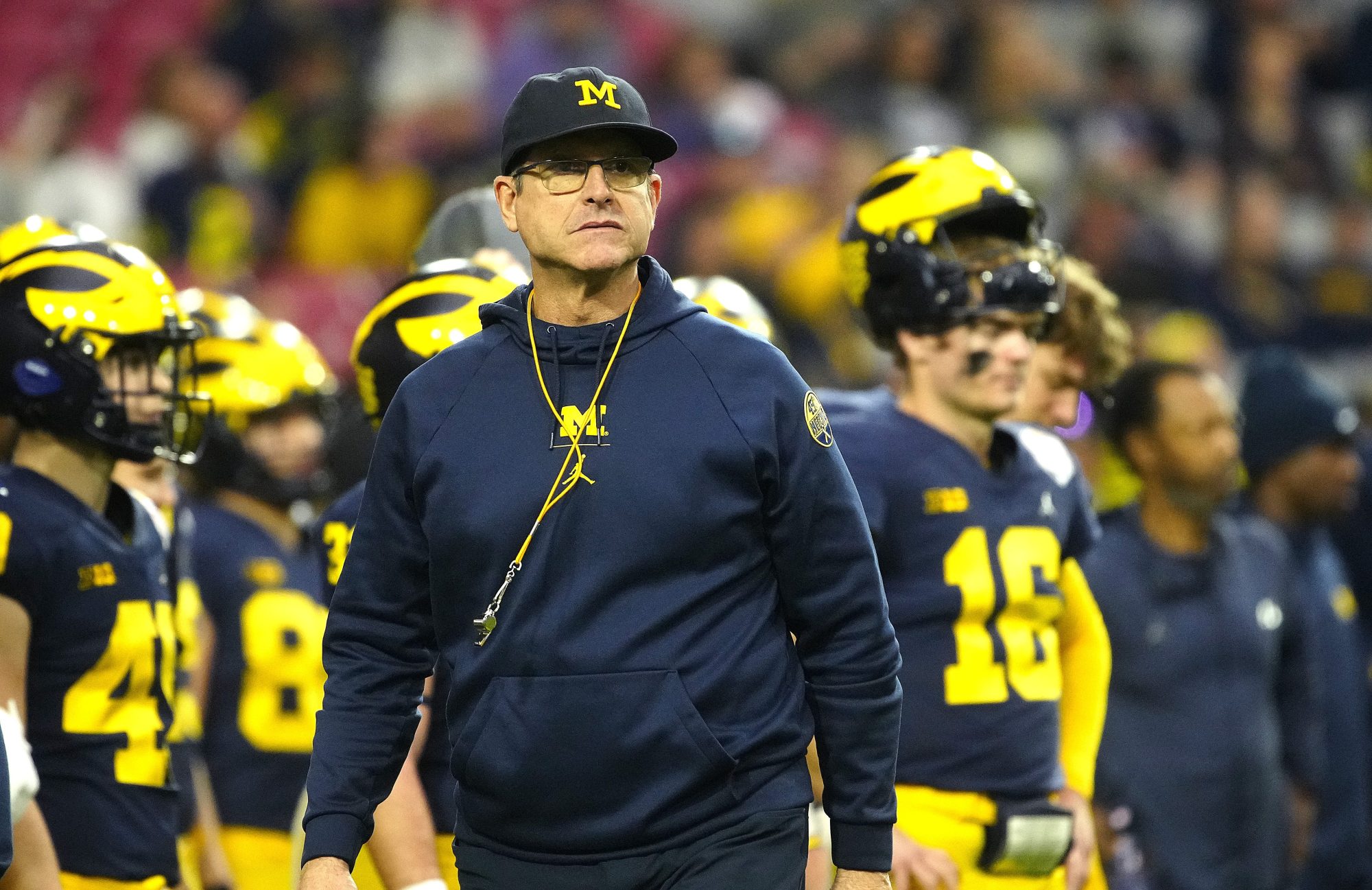NCAA rules allow Michigan head football coach Jim Harbaugh to donate to athletic department employees. But they prohibit him from doing the same for players — something the Wolverines coach expressed interest in during a recent call with reporters.
Following Michigan’s thrilling win over Ohio State on Saturday, Harbaugh reiterated his belief that players should get a share of school and conference revenues.
Harbaugh was asked if he would be interested in donating to name, image, and likeness collectives — one of the only ways players can be compensated during their time as athletes, given they’re not allowed to be paid by salaries.
He noted that he has donated portions of earnings to the Michigan athletic department before: In 2021, he gave his bonus salary back to the department to help compensate employees who took COVID-related pay cuts.
Harbaugh suggested he would do the same for his players. “I would take less money for the players to have a share,” Harbaugh, who will earn between $7 million-$11 million this year, told reporters Sunday night.
But he’s not allowed to donate money directly to players — or NIL collectives — even though he can do so for the athletic department writ large.
In Oct. 2022, the NCAA released specific “clarifications” about how athletic department employees could participate in NIL. It noted that, while coaches were allowed to promote NIL deals and collectives, they couldn’t donate to those groups themselves. Athletic department employees are, on the whole, prohibited from participating in NIL companies.
Harbaugh specified his disagreement with other NCAA rules: that athletes don’t get a share of media rights revenues, and aren’t eligible for any direct compensation. He said Sunday they should at least get minimum wage.
Four cases, including two in federal court and two at the National Labor Relations Board, aim to change these rules. But until one of them reaches a final ruling, Harbaugh will only be allowed to give athletes his voice — not his money.






![[Subscription Customers Only] Jun 15, 2025; Seattle, Washington, USA; Botafogo owner John Textor inside the stadium before the match during a group stage match of the 2025 FIFA Club World Cup at Lumen Field.](https://frontofficesports.com/wp-content/uploads/2026/02/USATSI_26465842_168416386_lowres-scaled.jpg?quality=100&w=1024)
![[Subscription Customers Only] Jul 13, 2025; East Rutherford, New Jersey, USA; Chelsea FC midfielder Cole Palmer (10) celebrates winning the final of the 2025 FIFA Club World Cup at MetLife Stadium](https://frontofficesports.com/wp-content/uploads/2026/02/USATSI_26636703-scaled-e1770932227605.jpg?quality=100&w=1024)









